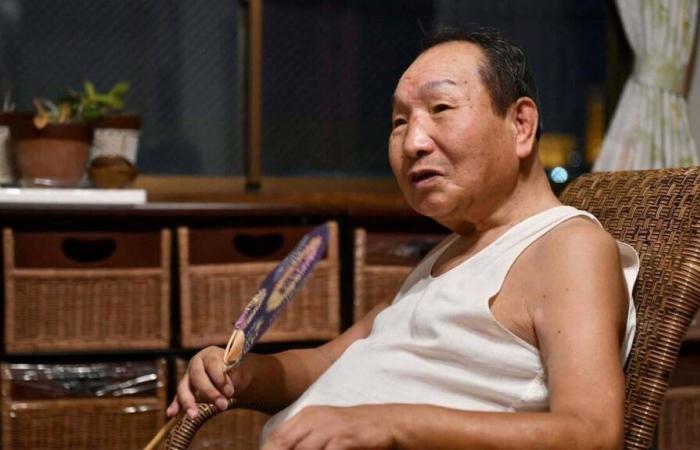
It took 58 years for Japanese justice to exonerate Iwao Hakamada. At 88, the man is free. He is the fifth death row inmate in postwar Japan to be found not guilty at a retrial. We fought a battle that seemed endless
declared to the media, leaving the Shizuoka court this Thursday, his sister Hideko, 91 years old, who has always supported him and with whom Iwao has lived on parole since 2014. The public prosecutor has two weeks to appeal against this historic verdict which could relaunch the debate on the death penalty.
After hours of interrogation
Arrested for the murder of a family of four in 1966, Iwao Hakamada then practiced boxing, a sport with a notorious reputation at the time. After hours of interrogation, he gave in and confessed. The ax falls. The octogenarian holds the sad world record for the greatest number of years spent on death row (45 years).
During this highly publicized new trial, the courts re-examined the evidence, including stained clothing. The change in color leaves no doubt, it could not be blood, assure scientific experts.
Also read. Carlos Ghosn’s incredible escape
In 2019, the Carlos Ghosn affair drew international media attention to the methods of the Japanese judicial system, which boasts a 99% conviction rate. The businessman had fled Japan, hidden in a trunk, fearing, like the defender of marine animals Paul Watson today, of ending his days in prison, without a fair trial. Police custody can last 23 days, or even be extended if new offenses are identified. Only one 15-minute visit per day is possible, under the supervision of a police officer. No further contact. Days of isolation and interrogations which are a difficult psychological ordeal.
Company wrongly accused
In December 2023, the Ohkawara Kakohki trial raised questions about fabricated evidence and the extraction of confessions during hundreds of interrogations. The Tokyo District Court ordered the authorities to pay 160 million yen in damages to the company, finding that it had been wrongly accused of exporting equipment that could be transformed into weapons. While it manufactures spray dryers, a technology that turns liquid into powder.
Read also. Flipper the dolphin trainer arrested again in Japan
The O’Barry case is the first in Japanese history in which a foreigner fought the system in court and won
explains lawyer Takashi Takano. Deported in 2016 after 19 days of detention, the American environmental activist, known for being the trainer of the media dolphin Flipper, was banned from territory for his action against dolphin hunting, in the fishing port of Taiji where he carried out the documentary The Cove
. The man was able to return to Japan last September: he now lends a hand to Japanese environmental activists who are campaigning for this cause.





